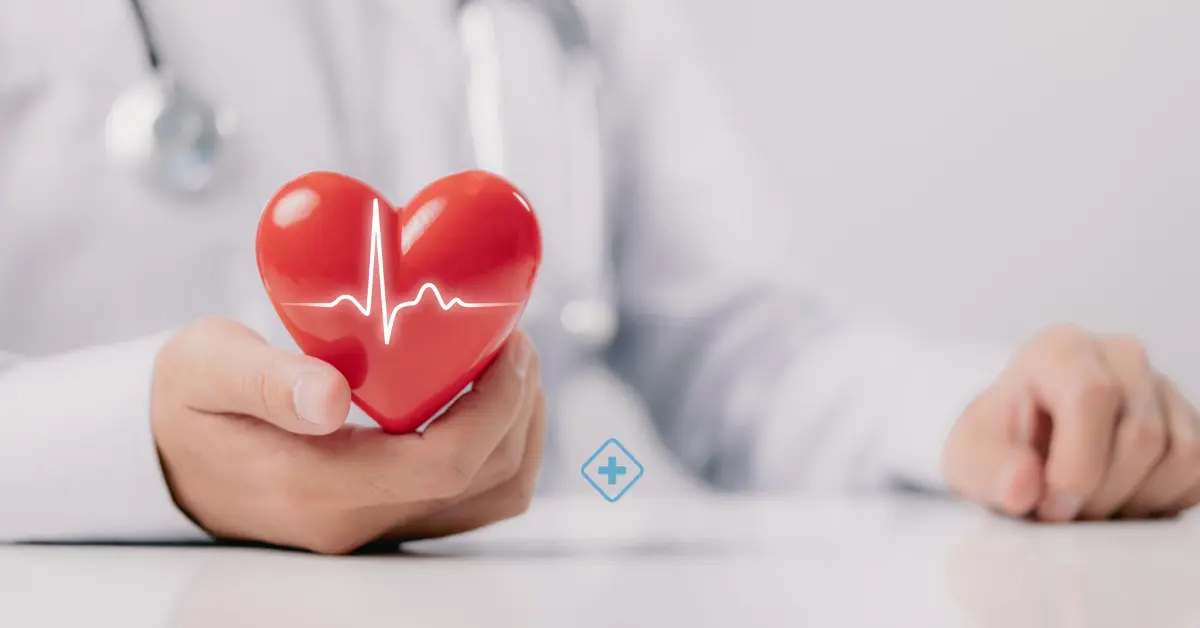
Cardiac Arrest
When the heart suddenly stops beating, and there is no blood supply to the brain and the rest of the body, it occurs. Cardiac Arrest is a significant threat to a patient's heart

When the heart suddenly stops beating, and there is no blood supply to the brain and the rest of the body, it occurs. Cardiac Arrest is a significant threat to a patient's heart
It is a medical emergency and must be attended immediately by the emergency medical team using a defibrillator and applying cardiopulmonary resuscitation (CPR); otherwise, it is unlikely to survive. If you have received CPR training, it can be applied, helping oxygen to continue flowing through the patient's body until the emergency medical team arrives.
Both Cardiac Arrest and cerebral infarction and cardiorespiratory arrest must be attended to immediately, otherwise it could cause death.
The main difference between Cardiac Arrest and Stroke is that in Cardiac Arrest, the person loses consciousness immediately, loses consciousness, has no pulse, and does not breathe.
The person who has a heart attack does not lose consciousness; on the contrary, suffers severe pain.
On the other hand, the difference between Cardiac Arrest and cardiorespiratory arrest is that in Cardiac Arrest, the heart is immobilized, causing the lungs. At the same time, the latter can present difficulties in breathing and damage the muscles pumping.
Causes of Cardiac Arrest
-
Consumption of certain medications
-
Coronary heart disease can clog the arteries of the heart, preventing continuous blood flow
-
Extreme physical exertion, trauma, electric shock, or significant blood loss
-
Having suffered a heart attack
-
Having coronary heart disease, sometimes it clogs the arteries of the heart preventing a continuous flow of blood
-
Having ventricular fibrillation occurs when there are problems in the heart rhythm
-
Suffering from heart block happens when an electrical signal is delayed or stops moving through the heart
-
Heart problems, such as congenital heart disease, heart valve problems, heart rhythm problems, and an enlarged heart
-
Uncommon levels of potassium or magnesium
-
Use of illegal drugs
Symptoms of Cardiac Arrest
Most people do not usually present symptoms of Cardiac Arrest. In case of suffering them, these occur approximately an hour before Cardiac Arrest occurs. We group the most common:
-
Accelerated heart
-
Chest pain
-
Shortness of breath
-
Lack of pulse
-
Fainting
-
Dizziness
-
Nausea, vomiting
-
Loss of consciousness
-
Trouble breathing
Risk factor's of Cardiac Arrest
The following are some risk factors that increase the probability of suffering Cardiac Arrest:
-
Drugs abuse
-
Age
-
Genetic diseases
-
Diseases of the vascular system
-
Central nervous system infections
-
Smoking
-
Circulatory disorders, such as arteriovenous malformations
-
Tumors
Diagnosis of Cardiac Arrest:
A Cardiologist will perform various tests and questions based on your symptoms, lifestyle, and medical history.
We group some of the tests that could be done to confirm if you have Cardiac Arrest:
-
An Electrocardiogram measures the rhythm of the heart
-
Defibrillator, through an electric shock, helps to restore the rhythm of the heart
After having suffered a cardiac event, the following tests may be performed:
-
Blood tests help detect signs of a heart attack and help measure potassium and magnesium levels
-
Chest x-ray helps identify other possible symptoms of heart disease
Treatment of Cardiac Arrest
We group the most common treatment methods after having suffered a Cardiac Arrest and, thus, can avoid another one.
-
Medicines prescribed by your doctor that help you to reduce high blood pressure and cholesterol
-
Surgery can repair the affected blood vessels or heart valves and prevent possible blockages in the arteries
Maintaining a healthy lifestyle could help improve quality of life. We group the following recommendations.
-
Do regular and continued physical exercise
-
No Smoking
-
Controlling stress
-
Do not consume alcohol in excess
-
Keep a healthy weight
-
Healthy eating
-
Consume fruits and vegetables
-
Maintain a low-salt diet
When should I see a doctor?
The Cardiologist is the specialist in charge of treating this type of disease, Cardiac Arrest is a medical emergency; if you have any of the symptoms mentioned above, you should go to the emergency room. You can go directly to the BlueNetHospitals Emergency Room in Los Cabos or call an ambulance at 624 1043 911.
To help oxygen continue to flow, the cardiopulmonary resuscitation (CPR) technique is used until medical assistance arrives. Anyone who is trained in CPR can give it.
BlueNetHospitals - Hospital Los Cabos
BlueNet Hospitals

Cardiac Ablation
Cardiac ablation is recommended when treatments are no longer effective or are not well tolerated to treat arrhythmias
Extrasystoles
Ventricular extrasystoles may not present symptoms; in other cases, they may cause unpleasant or alarming sensations.
Heart Murmurs
A heart murmur is an unusual sound that is heard when blood flows through the heart.
Cardiac Catheterization
Cardiac catheterization is an invasive procedure used to assess the heart and blood vessels by inserting a catheter into them.
- ¿Necesitas una cita con un Especialista?
- llámanos
- escríbenos
- Conéctate





